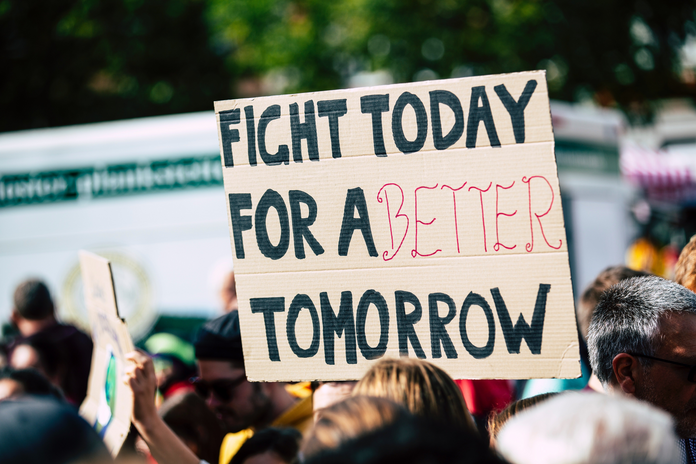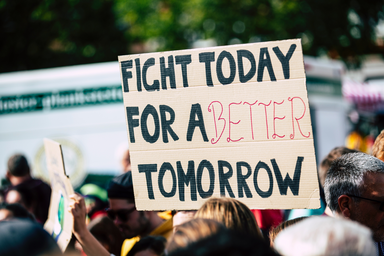Democracy is the bloodline of American history, yet the way we vote is antithetical to this ideal. I realized the strangeness of American politics during the 2016 election when all I knew was that Donald Trump was bad, and Hilary Clinton was only slightly less bad. We see this cycle repeat, as the Democratic Party’s 2020 nominee, Joe Biden, also doesn’t have the cleanest record. Is it really a democracy if we have to choose the lesser of two evils? But also, what went wrong with the 2016 election in order for us to have endured Trump’s presidency for the past four years?
The answer: the electoral college. Some may argue the pros of this method, stating that it is the most inclusive way of making sure each state has equal representation and acts to ensure that the election results are legitimate. But isn’t it outdated? The idea that “winner takes all” is laughable; this isn’t a game show, we’re talking about the President of the United States here.

The electoral college isn’t as equal as we thought. In 2016, one electoral vote in California was designated per 712,000 people. In Wyoming, a very sparsely populated area, 195,000 people constituted an electoral vote. Half a million people ceased to exist under this system. In addition, the fate of America’s future is put into the hands of “swing states,” which are states that have similar levels of support from voters of both parties. This shifts way too much power into these battleground states and directly ignores the opinions of tens of millions of other votes. Take Florida, for example, whose electoral votes were given to Trump because of just a 2.2% margin in 2016. This translated to 29 electoral votes, which completely discounts the Floridians that voted for Clinton.
We also can’t ignore the origin of the electoral college. This procedure was primarily created to give white slave owners a bigger role in casting decisions during the era of slavery. When the founding fathers were trying to create an efficient voting system, they ran into trouble with the southern states’ high population of slaves. This is how they came up with the ⅗ Compromise, where a Black person would count as ⅗ of a person for the sake of limiting their representation for electors in their state. The repercussions of this compromise have carried on even today, as the electoral college weakens Black voters. The population of Black people lies heavily in the South, but most of the time their candidate of choice, usually a Democrat, never wins in that state. So despite Black folks’ efforts to vote, these states have been red in past elections. Voting is one of the greatest civic duties we assume as constituents, and yet this process is discriminatory, another example of systemic racism that is embedded in the fabric of our country. The legacy of slavery has carried on and disguised itself in modern ways.

Learning all this made me feel hopeless in U.S. politics. But this can lead to the dangerous mindset that one’s vote doesn’t matter, which couldn’t be further from the truth. It is a privilege to be able to vote, and recognizing that privilege is the first step in being a global citizen. Voting today ensures a fighting chance for tomorrow. It’s easier to vote for Biden and protest his policies than completely choosing to not participate, thinking it makes you more “woke” when you’re only going to complain about the terrible things that the government does later. And until we address the elephant in the room, the best we can do is turn in our ballots and continue to be an advocate for issues that matter to us.
Voting might not affect you personally, but it will affect countless others. Why live here if you’re not willing to take care of those around you? Voting is democratic because one action can result in millions of saved lives. Protect democracy and exercise your constitutional right. Vote.



